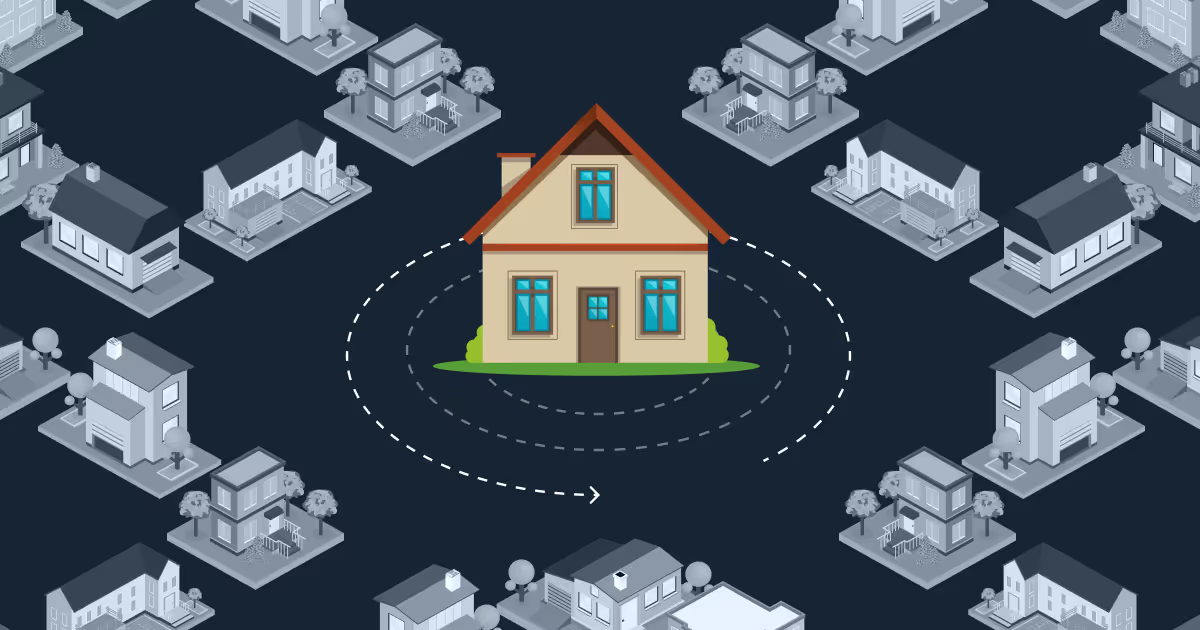
You're eyeing that shiny AWS console, thinking it's the Swiss Army knife of cloud computing. But hold on – before you click that "Launch Instance" button for your next big web scraping project, let's burst that bubble. AWS might be a powerhouse for many tasks, but when it comes to large-scale data collection, it's like bringing a knife to a gunfight. Here's why your AWS dreams might turn into a web scraping nightmare.
The limitations of using AWS for web scraping
1. IP address reputation
One of the most significant challenges in web scraping is maintaining a good IP reputation. AWS uses a relatively small pool of IP addresses compared to the vast number of websites you might need to access. When you run multiple scraping jobs from AWS, you're likely using IP addresses that have been used by many other AWS customers. This can lead to several issues:
- IP bans: Websites may recognize these IPs as belonging to AWS and potentially block them, assuming they're being used for automated access.
- CAPTCHAs: You might encounter more CAPTCHAs, which can slow down or halt your scraping operations.
- Rate limiting: Some websites may impose stricter rate limits on requests coming from known cloud provider IP ranges.
2. Geographical restrictions
While AWS has data centers around the world, they're still limited in number. This can be problematic when you need to access geo-restricted content or want to gather data that appears differently based on the user's location. You might find it challenging to:
- Access region-specific versions of websites
- Collect accurate local pricing information
- Gather location-based search results
3. Detection and blocking
Many websites have sophisticated anti-bot measures in place. They can often detect traffic coming from cloud providers like AWS and treat it with more suspicion. This can result in:
- Increased blocking of your requests
- Serving of different content than what a regular user would see
- Skewed data that doesn't accurately represent what you're trying to collect
4. Scalability challenges
While AWS is highly scalable for many applications, when it comes to web scraping, you might hit some roadblocks:
- Cost: As you scale up your operations, the costs can quickly escalate, especially if you need to use more powerful instances to handle complex scraping tasks.
- Management complexity: Managing a large fleet of EC2 instances for scraping can become complex and time-consuming.
- Quota limits: AWS imposes certain quota limits that might restrict your ability to scale rapidly for large scraping jobs.
The alternative: Using a dedicated proxy network
Instead of relying solely on AWS, many businesses and developers turn to dedicated proxy networks for their web scraping needs. Here's why:
1. Diverse IP pool
Proxy networks like Massive offer a vast and diverse pool of residential IP addresses. These IPs:
- Are less likely to be recognized as coming from a data center
- Have better reputations with websites
- Can rotate, reducing the risk of bans or detection
2. Global coverage
With residential proxies, you can access the internet from almost anywhere in the world. This allows you to:
- Gather truly localized data
- Access geo-restricted content easily
- Perform market research across multiple regions simultaneously
3. Improved success rates
Dedicated proxy networks are designed specifically for tasks like web scraping. They often provide:
- Higher success rates for your requests
- Lower latency, allowing for faster data collection
- Built-in features to handle common scraping challenges
4. Ethical considerations
Many proxy networks, including Massive, prioritize ethical sourcing of IP addresses. This means:
- Compliance with regulations like GDPR and CCPA
- Transparent practices about how IPs are obtained and used
- Reduced risk of inadvertently participating in unethical data collection
Dedicated Proxy Networks Win for Web Scraping
While AWS is an excellent platform for many cloud computing needs, it's not always the best choice for large-scale web scraping operations. The limitations in IP diversity, geographical coverage, and potential for detection can hinder your data collection efforts.
By using a dedicated proxy network like Massive, you can overcome these challenges. You'll have access to a diverse, global pool of IP addresses, improved success rates, and tools specifically designed for web scraping tasks. This approach not only enhances the efficiency and reliability of your data gathering operations but also helps ensure that you're collecting data in an ethical and compliant manner.
Remember, successful web scraping isn't just about having powerful servers – it's about blending in with regular internet traffic and accessing the data you need without disruption. A dedicated proxy network provides the tools and infrastructure to do just that, allowing you to focus on extracting valuable insights from the data you collect.
FAQ
+
+
+
+
+
+
+
+
+
+
Discover your ideal proxy
Loading...











.png)


